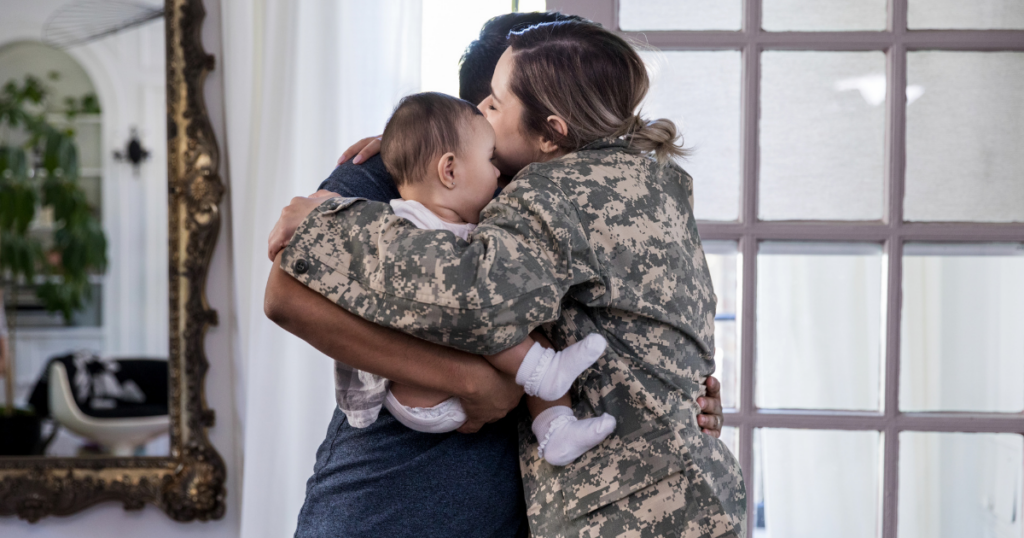The transition from Military to Civilian Life
June 6, 2022
Getting out of the military is probably as complicated as it is going in. It requires planning, patienece, and work. If all you do is fill out a checklist and expect everything to work out, you’re going to encounter a big surprise. Here are some tips and resources that can make the transition from military to civilian life a little bit smoother.
“When shifts and transitions in life shake you to the core, see that as a sign of greatness that’s about to occur.”
– Martha Beck

Why the Transition from Military to Civilian Can Be Difficult
For starters, the military is designed to take care of service members and their basic needs so they can focus on winning wars. The military takes care of food, housing, and healthcare while also guaranteeing a paycheck. Returning and refocusing on those responsibilities when you transition from military to civilian life can present challenges.
A recent survey by the Pew Research Center explains that military service is of course difficult, demanding, and dangerous, but returning to civilian life also poses challenges for those men and women who served in our armed forces.
The study indicates that 72% of veterans report they had an easy time adjusting back to civilian life, but 27% have indicated it was a difficult process. This percentage jumps significantly (44%) for those who served in the ten years following the September 11th, 2001 terrorist attacks.
Who Will Experience Challenges
Jumping from a structured military life to civilian life is a significant change that can bring uncertainty and frustration that inevitably leads to decision fatigue. It will – at times – feel like there are endless options, possibilities, and decisions to make. And when mental fatigue and frustration set in so does civilian stress.
Studies show there is a definite connection between individuals who have a difficult time transitioning and whether they were exposed to an emotionally traumatic event during the time they served. Serving in a combat zone can make it much more difficult to adjust to civilian life.
There are a few factors identified that make re-entry a bit easier for a veteran returning home:
- Commissioned officers are less likely to have trouble
- College educated veterans have an easier transition
- Religiosity has also played a positive role in preparation for the change
Some of the common challenges with transition include the following:
- Relating to people that have no idea how to understand or empathize what military personnel have experienced.
- Reconnecting with family and re-establishing a role in the family as new routines have been in place while the veteran was not at home.
- Joining a community is completely new, as during your service, the military assisted with your adjustments.
- When entering a civilian workforce, a veteran will need to translate and adjust their military duties into civilian terms.
- Creating structure and even necessities (food, clothing, housing) are something the military handled for the veteran in the past. This change may be overwhelming.
Tips for a Successful Military to Civilian Transition
Here are 4 key tips for making the transition from military to civilian life easier and much more fulfilling:
- Find a Support System – Your military career was all about “community,” so you will want to immediately try to recreate that in some sense – other veterans, a church and/or other community groups like Soldiers’ Angels, VFW, American Legion, etc. Community adds encouragement and sense of purpose.
- Create a Routine – Finding a routine that simulates some of your military environment will help. Exercising is critical: running, working out, cycling… whatever simulates your training.
- Serving Others – Even though you sacrificed everything for our country, coming back you will find volunteering and serving other people is a great way to put a smile on your face and make the transition easier. The key will be finding a way to serve and encourage others that fits your talents and your personality.
- Remember: Civilians Do Not Always Understand – Being patient will be one of the hardest things you will need to do – with yourself, your family, and your friends. Readjusting to civilian life is a long process. It takes time knowing what resources are there for you.
Resources for the Military to Civilian Transition
There are various resources available to our well deserving veterans (these are only a few):
- Veterans Employment Toolkit: This is a toolkit designed to assist veterans with finding employment
- Military Times Reboot Camp: Great resource for purchasing homes, tips for spouses, and reducing stress!
- DANTES DoD VolEd Programs: DANTES (Defense Activity for Non-Traditional Education Support) provides no-cost education and career planning programs for the US Armed Forces military members
- Military-Transition Org: This helps service members, veterans, spouses, and employers better understand and prepare for the military to civilian transition process
It is very important for service members to understand that the transition from military to civilian life is also difficult for their spouse and family.
Resources for Military Spouses
Further, there are also resources available for your spouse:
- Military-Transition Org: Same website for veterans listed above but there is a special section for spouses, which identifies organizations to assist, tools & training, advice, and other info
- MyStep Military Spouse Transition Program: Provides trusted and reliable information, videos, and links to assist your family and their transition
It is great to identify as a veteran, but since most vets leave the service at a very young age, it’s important to remember that your life is just beginning. The military is not the only thing you’re going to do with your life and it may not even be the best thing that you will ever do. Plus, if your military training has taught you anything, it is that you can handle just about everything.


